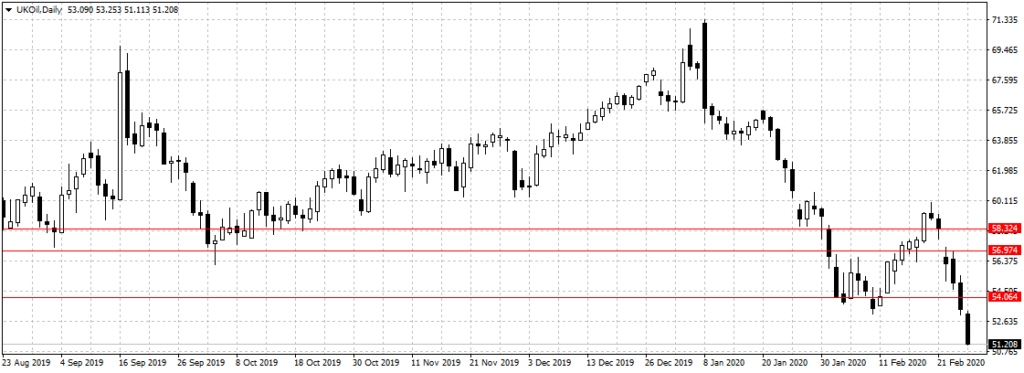- Oil Price Dips to $51.2 as Coronavirus Spreads Outside China
Global oil price declined from $57.97 a barrel recorded on Tuesday following the continuous spread of coronavirus outside the outbreak nation, China.
The Brent Crude oil, against which Nigerian oil is priced, declined from $57.97 per barrel to $51.20 on Thursday as more people tested positive to coronavirus across the world.
 According to a Reuters’ report, Shinzo Abe, Prime Minister, Japan, has directed that all government-owned school system, from elementary to high schools, be closed until the spring break in March to help contain coronavirus outbreak in the world’s third-largest economy.
According to a Reuters’ report, Shinzo Abe, Prime Minister, Japan, has directed that all government-owned school system, from elementary to high schools, be closed until the spring break in March to help contain coronavirus outbreak in the world’s third-largest economy.
Investors across the world are jumping on haven assets to curb risk exposure, especially after global stocks erased $3 trillion in value this week. Experts fear the outbreak could become a global pandemic with the rising number of affected nations and victims.
About 1500 people have been infected in South Korea, while Italy is struggling to contain the virus to infected 213 plus people.
The story is not different in Iran, Japan, and other nations struggling to put an end to the outbreak. This, according to the International Monetary Policy, could derail 2020 economic growth and hurt global activity.
“There is every indication that the world will soon enter a pandemic phase of the coronavirus,” Australian Prime Minister Scott Morrison stated as he asked hospitals across the country to ensure they have enough medical supplies, protective gear and staff.
In France, Emmanuel Macro, French President, said “We have a crisis before us. An epidemic is on its way.” That was after a 60-year old Frenchman died from the virus in France.
On Monday, the International Air Transport Association (IATA) estimated that Asia-Pacific carriers would lose $29.3 billion or 13 percent in demand value this year as more flights and passengers shun the region.
IATA said: “This would bring total global lost revenue to $29.3 billion, five per cent lower passenger revenues compared to what IATA forecast in December representing a 4.7 per cent hit to global demand.
“In December, IATA forecast global revenue per kilometre growth of 4.1 per cent , so this loss would more than eliminate expected growth this year, resulting in a zero point six per cent global contraction in passenger demand for 2020.”